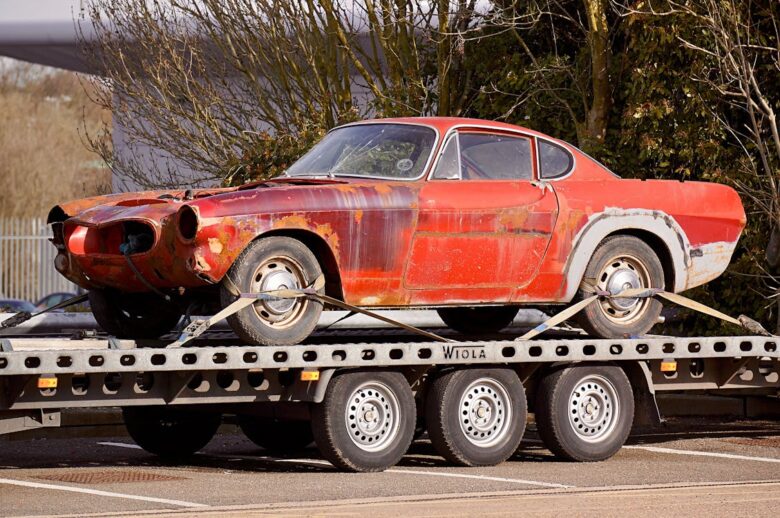Having your vehicle break down on the side of the road can turn a normal day into a stressful experience. Flat tires, dead batteries, lockouts, or running out of fuel are problems drivers would rather avoid. That’s where roadside assistance comes in. Many auto insurers, including Mercury Insurance, offer roadside help as an add-on to standard policies. But the real question for many drivers is simple: Is it worth the cost? Understanding how Mercury’s roadside assistance works, what it includes, and how it compares to alternatives helps you decide whether this coverage is a smart choice for your situation.
What Mercury Roadside Assistance Covers
Roadside assistance from Mercury Insurance is designed to provide help when your vehicle becomes disabled due to mechanical failure or other covered events. Typical situations where roadside help applies include a flat tire that cannot be safely driven on, a dead battery that prevents the car from starting, or an accidental lockout where the keys are inaccessible inside the vehicle.
Some plans also include fuel delivery when you run out of gas, towing to the nearest qualified repair facility, and winching if your vehicle is stuck in a ditch or off-road surface. The goal of roadside assistance is not to fix long-term mechanical issues, but to get you safely moving again or into the hands of a professional service that can.
How Roadside Assistance Works With Your Policy
To use roadside assistance, you typically contact Mercury’s dedicated service line or use the insurer’s mobile app if available. When you make a request, the assistance provider gathers your location, the nature of the issue, and the type of help needed. A contracted service professional is then dispatched to your vehicle.
Charges for services under roadside assistance depend on the terms of the coverage option you selected. If you have roadside assistance included in your policy, most eligible services are provided without further out-of-pocket cost beyond the premium you already paid. Some policies may impose limits on the number of service calls per year or how far a tow is covered without extra fees.
Cost Considerations: What You Pay for This Coverage
Adding roadside assistance to your Mercury auto insurance policy increases your premium because you are purchasing additional service beyond the mandatory liability and optional collision or comprehensive coverages. Some drivers view this cost as negligible relative to the convenience and peace of mind it provides. Others question paying for a service they only hope to never use.
The cost of roadside assistance varies by state, vehicle type, driving history, and policy configuration. Because it is an add-on, it should be compared with the value you expect to receive rather than evaluated in isolation. For example, if you travel frequently or drive in areas with limited cell service, paying for roadside help may be more justifiable than for someone who rarely leaves familiar roads.
When Roadside Assistance Is Most Useful
Roadside assistance tends to be most valuable in unpredictable situations. Drivers who commute long distances, travel in unfamiliar areas, or drive older vehicles that may have higher chances of mechanical issues often find this coverage particularly worthwhile. In these cases, the convenience of having a trusted service provider dispatched directly to your location can outweigh the cost of an added premium.
Additionally, if you do not have access to family members, friends, or a personal vehicle club membership that covers roadside events, having Mercury’s assistance can provide a reliable safety net.
Alternatives to Adding Roadside Assistance to Your Policy
Before deciding on purchasing roadside help from Mercury, it’s worth considering alternatives. Some drivers are already members of automobile clubs such as AAA, which typically include roadside assistance as part of a broader membership. Other credit cards or vehicle warranties sometimes offer complimentary towing or battery jump starts.
If you already receive adequate support through these alternative sources, adding a similar service to your auto policy may be redundant. In such cases, evaluating what you already have can prevent unnecessary expense.
How Dependable Mercury’s Roadside Services Are
Dependability is often the most critical factor in evaluating roadside assistance. Nothing is more frustrating than being stranded and waiting for help that is slow to arrive. Reviews from Mercury policyholders indicate that experiences with roadside help are generally positive when service providers respond promptly and complete the requested service without issues.
However, as with any third-party contracted service, response times can vary based on location, time of day, weather, and traffic conditions. Urban areas with dense service networks tend to see faster responses compared with rural regions where fewer service providers operate.
Understanding Coverage Limits and Exclusions
It’s important to understand that roadside assistance does not replace comprehensive vehicle maintenance or long-term mechanical repair coverage. The service is focused on immediate, emergency-type situations. For this reason, mechanical breakdowns that occur outside the scope of sudden disability may not be covered. For example, if a tire is worn and fails slowly over time, a traditional mechanical repair plan or warranty, not roadside assistance, would be the appropriate support.
Reading the fine print of your policy or discussing coverage details with a Mercury agent ensures that you understand the limits, exclusions, and any additional charges that may apply.
Cost vs. Peace of Mind: Making Your Decision
Deciding whether Mercury’s roadside assistance is worth the cost ultimately comes down to your comfort level and risk tolerance. For many drivers, the peace of mind that comes from knowing help is a single call away is worth a modest added premium. For others who rely on existing memberships or have limited travel needs, passing on this coverage may make more financial sense.
Thinking through realistic scenarios — such as being stranded on a cold night with no cell signal or needing a tow after a collision — helps clarify whether you value the convenience and support that roadside assistance provides.
Final Thoughts
Mercury Insurance’s roadside assistance offering is a valuable complement to standard auto coverage for many drivers. It provides practical, on-the-spot help when you are disabled on the road, reducing stress and potential hazards. While adding this coverage does increase your premium, the cost often reflects a small price relative to the convenience and safety net it offers.
By comparing your current needs, travel patterns, existing memberships, and financial comfort zone, you can decide whether this add-on enhances your overall protection profile. If dependable help and immediate support matter to you, roadside assistance with Mercury can be a worthwhile investment in both safety and peace of mind.




